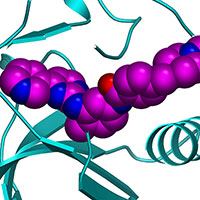
- The Francis Crick Institute (The Crick) conducts cutting-edge medical research to help find radical solutions to treat diagnose and prevent major illnesses such as cancer, heart disease and Alzheimer’s.
- Their strategy has received wide-spread recognition, and the 2015 winner of the Nobel Prize in Chemistry, Crick Emeritus scientist Thomas Lindahl FRS, has provided fundamental knowledge for the development of new cancer treatments.
- The Crick is a unique partnership between six of the UK’s most successful scientific institutions.
On Wednesday 30 March 2016, SCI’s Public Evening Lecture will invite us behind the scenes of The Francis Crick Institute. The lecture will be delivered by Sir Paul Nurse, Director of the Francis Crick Institute. Sir Paul, a former Nobel Prize winner and former President of the Royal Society, was integral to the establishment of The Crick. He will talk about The Francis Crick Institute and the cutting edge work being delivered to diagnose and prevent illnesses.
The Francis Crick Institute
The Francis Crick Institute (The Crick) was developed in response to an independent review of arrangements for funding health research in the UK. The review, commissioned in 2006 by the UK Government set out a vision for enhancing the effectiveness of medical research in the UK via a world-leading multi-disciplinary biomedical research institute in London.
Bringing together 1,250 researchers, The Crick conducts cutting-edge basic biological research to drive discoveries and improve the understanding of why disease develops and to find new ways to diagnose, prevent and treat a range of illnesses − such as cancer, heart disease and stroke, infections and neurodegenerative diseases. An example of the type of research being delivered at The Crick is the work done by Francis Crick Emeritus scientist and winner of the 2015 Nobel Prize in Chemistry, Thomas Lindahl, He has mapped how cells repair damaged DNA and safeguard the genetic information. This has provided fundamental knowledge for the development of new cancer treatments.
The Institute intends to identify and nurture new research opportunities and develop strong synergies and novel scientific interactions between its own research groups and other collaborators across the UK, in both the private and public sector. By building a world-leading institute, The Crick aims to attract high-value investment and strengthening the economy.
At the heart of its philosophy is a commitment to the highest quality science. It is believed that the necessary quality can only be delivered through a focus on the best and most imaginative scientists, which in turn requires a broad and flexible approach to The Institute’s scientific programme.
About the Speaker
Sir Paul Nurse is a geneticist and cell biologist who has worked on how the eukaryotic cell cycle is controlled and how cell shape and cell dimensions are determined. His major work has been on the cyclin dependent protein kinases and how they regulate cell reproduction. He is Director of the Francis Crick Institute in London and has previously served as President of the Royal Society, Chief Executive of Cancer Research UK and President of Rockefeller University.
Sir Paul shared the 2001 Nobel Prize in Physiology or Medicine and has received the Albert Lasker Award and the Royal Society's Royal and Copley Medals.
He was knighted in 1999 and received the Legion d'honneur in 2003.
Date: Wednesday 30 March 2016
Venue: SCI HQ, 15 Belgrave Square, London SW1X 8PS
Time: Reception opens at 18.00 and the lecture starts at 18.30. There will be an opportunity to meet the speaker after the lecture at a drinks and networking reception.
Contact: SCI Marketing, E: scimarketing@soci.org, T: +44 (0)207 598 1562





